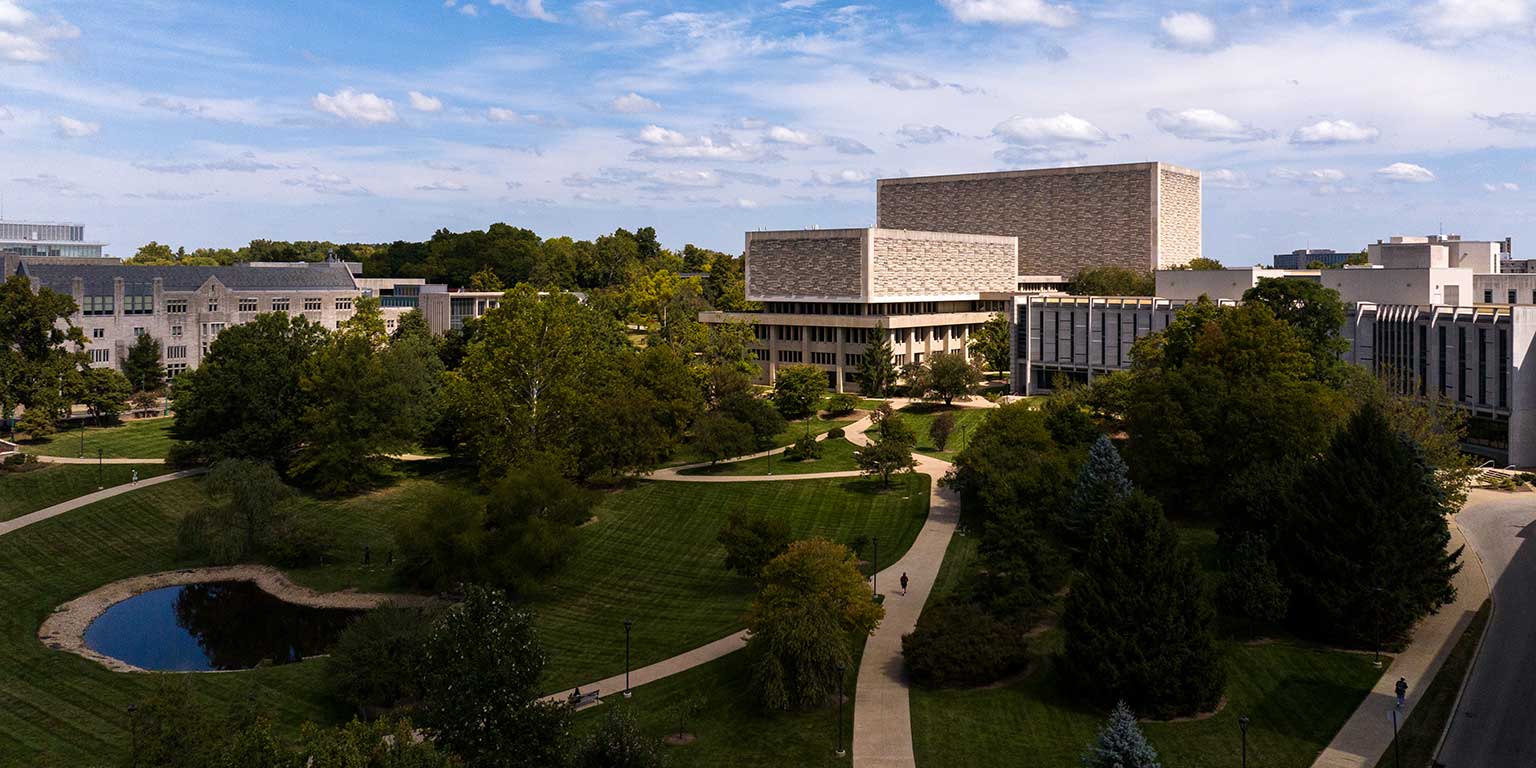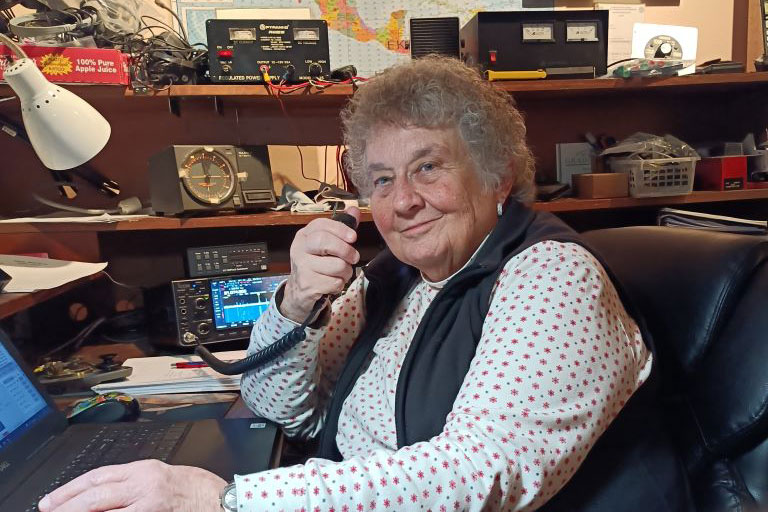The importance of research
“Research is a basic skill,” Yasson explains. “It’s a mindset that, without it, we as a society would likely not move forward. Research is not only looking back at where we came from, but looking forward and creating what is next.”
Yasson, a retired librarian, knows research is essential. In addition to her degree in political science from the College, she earned her master of library science from IU a year after finishing undergrad.
Yasson worries that the large size of academic libraries is uninviting. Likewise, she sees research as “physically unapproachable.”
“During the pandemic I read a fair amount of science articles,” she says. “I read a lot about some of the research they were doing for the COVID vaccines. I imagined all these people in these white suits running around labs, and I was thinking this isn't terribly approachable either.”
The solution, for Yasson, is to personalize research and get people talking across disciplines.
“Libraries have tools that if we use them, we will be better informed, more well-rounded, and have a better grasp of the environment we are a part of,” she says.
Having a librarian mentor for an ASURE class, or even just a few ASURE students, can be a key to finding information within databases, in library research guides, or in an archive.
“Answer a question by doing problem solving and research. I like that the student is introduced to the concepts and the methods in a way that lays a foundation for the next years of study,” Yasson says. “Research is one of the things that when we do it well, what we do matters. We need to do much more that matters in the 21st century.”
Giving a gift that has impact
“Somewhere in my childhood, I heard my mother talk about giving to Evansville College (later it became the University of Evansville),” says Yasson. “It occurred to me, that's the thing to do.”
In making her gift, Yasson worked with Sue Sgambelluri, a Director of Development at the College of Arts and Sciences.
“This has been an interesting journey,” Yasson states. “Sue and I had several conversations about what program I might be interested in supporting. We discussed several good ideas that just didn’t quite seem to fit.”
During the pandemic when Yasson was reading that science material, she got the idea of an interdisciplinary project. She says it just hit her.
“I had been thinking about IU programs that let you plan your major by combining material from different disciplines,” Yasson explains. “I realized that combining arts and sciences with more focused information from library staff might help students’ academic careers.”
She wanted to encourage students to do research with a required library component.
“As a political science major with a history minor, also an M.L.S, I have always been fascinated by what it takes to do rigorous social sciences research,” she says.
Yasson thought of Will Shortz, National Public Radio’s puzzle master who famously designed his own major at IU. Yasson says, “I like the idea of a multidisciplinary approach to what my gift was going to be. And at that point the two obvious choices were Arts and Sciences and Libraries.”
Sgambelluri had mentioned ASURE to Yasson a few times. “Finally, I realized ASURE comes as close to research related to a particular class or academic path as anything, and I like that it is for freshmen.”
A long-time donor to IU Libraries, Yasson was also working with Pete Rhoda, IU Libraries’ Executive Director of Development. Rhoda, who believes partnering with other units is vital, often says that IU Libraries are the hub of the university and that librarians are “the secret sauce of student success.” Of course, this aligns well with Yasson and Sgambelluri’s thinking.
“Given the bulk of Arts and Sciences context, I think, Libraries can, or should, sync,” Yasson explains.




